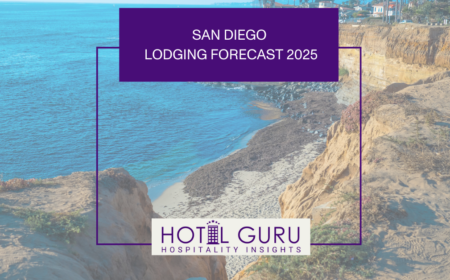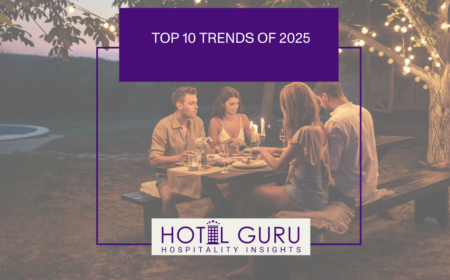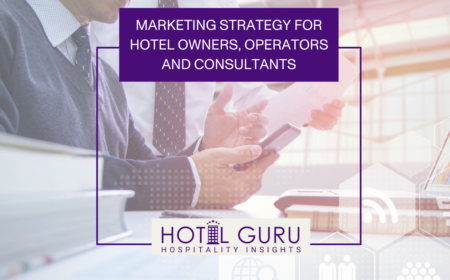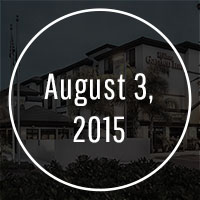Survival guide for the tech-driven hotelier
This article was originally published on Hotel News Now.
Hoteliers who rely on data mining to guide decisions and customize travel experiences for their guests should consider these disciplines in 2019 business plans.
It is a necessity to understand customers through the effective use of data in hospitality. Hoteliers who harness the power embedded in customer data—using it to guide their decisions and customize the travel experience for individuals—will have a competitive advantage in the all-important race for market share.
The relatively new process known as “data mining” can be instrumental in extracting meaningful patterns and can assist in building predictive customer-behavior models that aid in decision-making. Those companies who do not adapt will suffer a loss of market share.
Consumer tastes and behaviors are always changing and this is primarily driven by who is traveling. Millennials will surpass baby boomers as the largest demographic group in the U.S. as early as next year. They are redefining the travel industry because their habits, tastes and behaviors differ dramatically from other generations. Their digital behaviors will push technology forward and a genuine, personalized service model, such as the one described in John Naisbitt’s “High Tech High Touch: Technology and Our Search for Meaning” book, will win them over.
What specifically can hoteliers do to avoid the death spiral? All of these disciplines must be included in 2019 business plans so that meetings, business travel and leisure travel are all covered:
Travel trade
- Establish relationships and agreements with travel trade principals including receptive operators.
- Join travel organizations for client contacts including USTOA, USTA, ABA and ASTA.
- Establish relationships with any brand or local convention and visitors bureau representatives responsible for travel trade.
Meetings market
- Establish relationships with the association meetings market through participation in organizations such as SGMP and ASAE.
- Establish relationships with the corporate meetings market through participation in organizations such as MPI.
- Establish relationships in the religious market through participation in such organizations such as Connect.
- Quarterly web presentations to third-party agents with HelmsBriscoe, HPN and ConferenceDirect.
buy naprosyn online https://slowittravel.com/2022/wp-content/uploads/2022/08/png/naprosyn.html no prescription pharmacy
- Purchase diamond listing with CVENT and regularly post offers to attract meeting planners and potential clients.
- Establish relationships with any brand representative responsible for specific meetings markets beings targeted.
Business travel market
- Do weekly prospecting using Agency 360.
- Google pseudo city codes for accounts found on Agency 360 report to further penetrate the accounts.
Marketing
A social media marketing strategy is an industry imperative and a viable solution in the digital age. Platforms including Facebook, Twitter and Instagram allow hotels, restaurants, tourist attractions and other recreational facilities to engage guests and offer a more highly personalized level of customer service than before. The relationship between businesses and customers has become friendlier with social media, as the lines blur between social networking and advertising. These social media profiles are a key element that affects organic search rankings for your business.
To grow social media audience, engagement and awareness of your business, use the most popular social media sites: Facebook, Twitter and Instagram.
Strengthen customer loyalty through daily posts and interactions. Monitor Yelp and TripAdvisor reviews to increase customer satisfaction.
LinkedIn / Facebook / Twitter / Instagram
- Establish a clear matrix of who is responsible for creating content and posting specific content in your organization.
- Establish a generic annual posting calendar with placeholders and then develop detailed monthly or quarterly content posting calendars.
- Prepopulate and schedule any generic postings for specific time periods to save time.
All three of the above means are very useful in advertising upcoming special offers and events at your property. Posts should be brief, informative and accompanied by a vibrant, eye-catching image.
Reputation management
Social media gives guests the opportunity to sound off and write comprehensive reviews on the products and services being offered. It is important to actively direct this conversation and reply to guest reviews.
- To use reputation management effectively, hotels need to have a presence on the sites promptly by responding to reviews and reassuring the guests that we are actively listening to their feedback.
- Reputation management is also about how hotels work to improve rankings on these review sites. This will help lead to better customer service from our team members and reviews on the sites.
buy valtrex online https://slowittravel.com/2022/wp-content/uploads/2022/08/png/valtrex.html no prescription pharmacy
Bottom line
Exceptional customer service truly is the key to developing customer equity. Zero defects, a term also coined in the mid-80s as part of “quality assurance,” still allows for one of the inferior service levels like basic, expected or desired service. Not only must we avoid errors in service, we must provide “wow” customer service to ensure guests consider returning to our hospitality business.
This level of service must be added to each of the hotel disciplines for optimum effectiveness. This includes accounting, front desk, maintenance, housekeeping and food and beverage. We need to keep all of our guests by using that zero-defects mindset to achieve the customer equity that exists when customers return.





